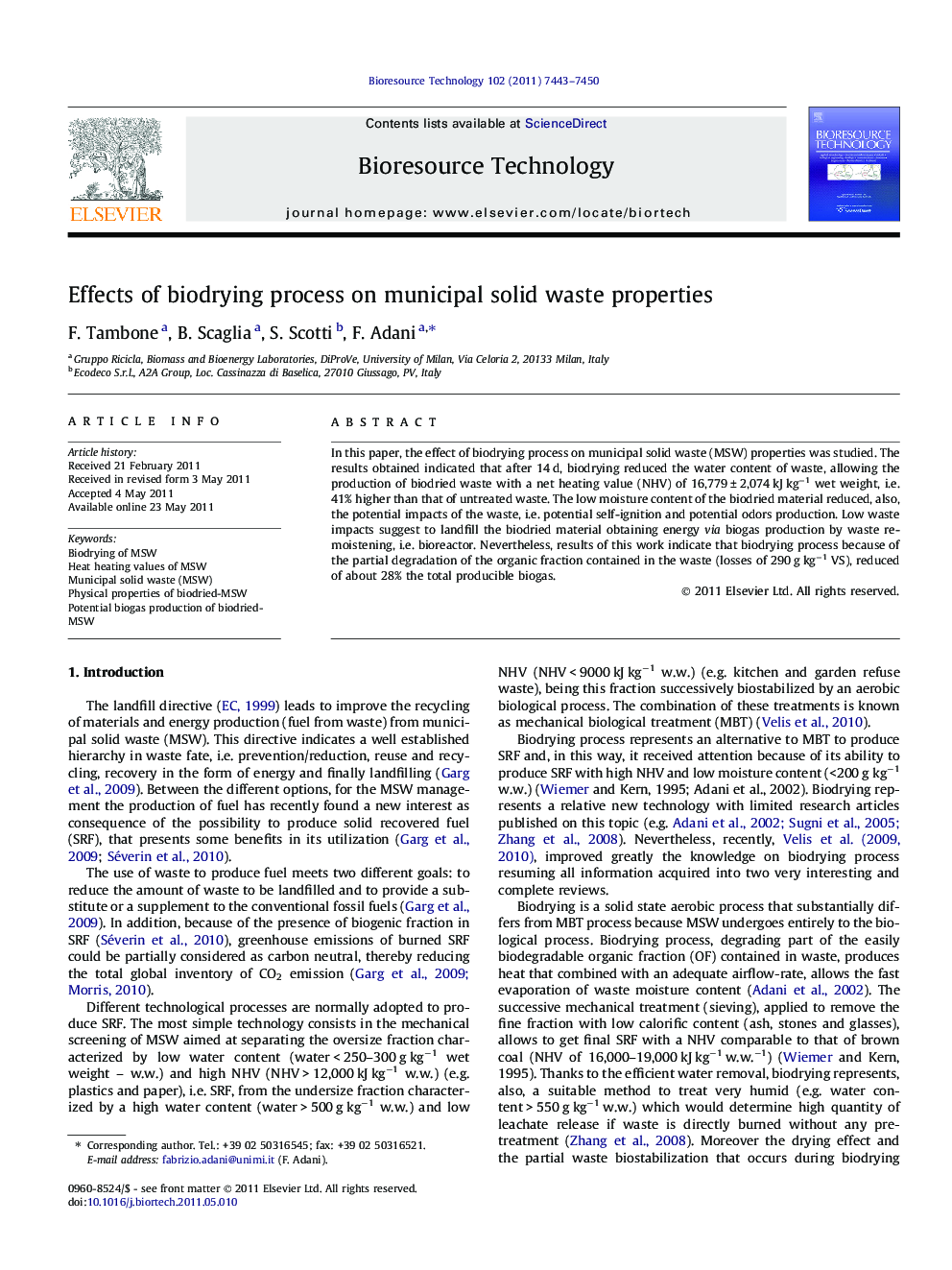| Article ID | Journal | Published Year | Pages | File Type |
|---|---|---|---|---|
| 681835 | Bioresource Technology | 2011 | 8 Pages |
In this paper, the effect of biodrying process on municipal solid waste (MSW) properties was studied. The results obtained indicated that after 14 d, biodrying reduced the water content of waste, allowing the production of biodried waste with a net heating value (NHV) of 16,779 ± 2,074 kJ kg−1 wet weight, i.e. 41% higher than that of untreated waste. The low moisture content of the biodried material reduced, also, the potential impacts of the waste, i.e. potential self-ignition and potential odors production. Low waste impacts suggest to landfill the biodried material obtaining energy via biogas production by waste re-moistening, i.e. bioreactor. Nevertheless, results of this work indicate that biodrying process because of the partial degradation of the organic fraction contained in the waste (losses of 290 g kg−1 VS), reduced of about 28% the total producible biogas.
► Biodrying process reduces waste water content increasing net heating value. ► Biodried waste can be used to produce SRF to be burned in incinerator. ► Low water content of the biodried waste reduce, also, waste impacts. ► Low waste impacts suggest biodried-waste landfilling. ► Biodried-waste in landfill can be used to produce energy via biogas production.
